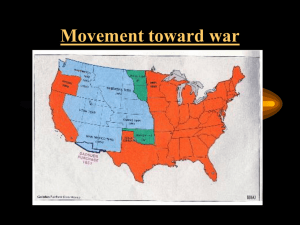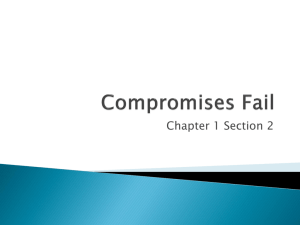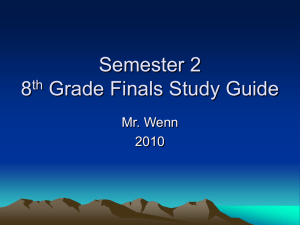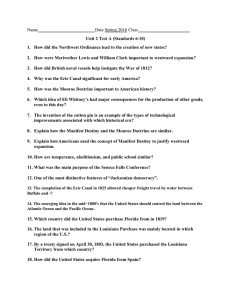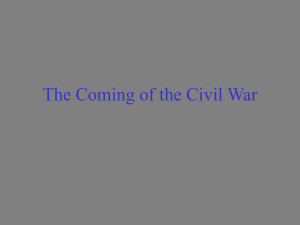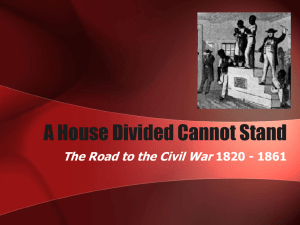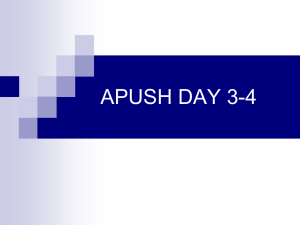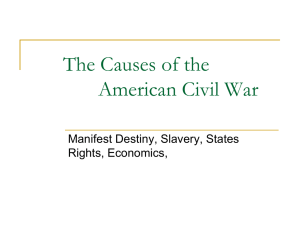Objective 3.01
advertisement
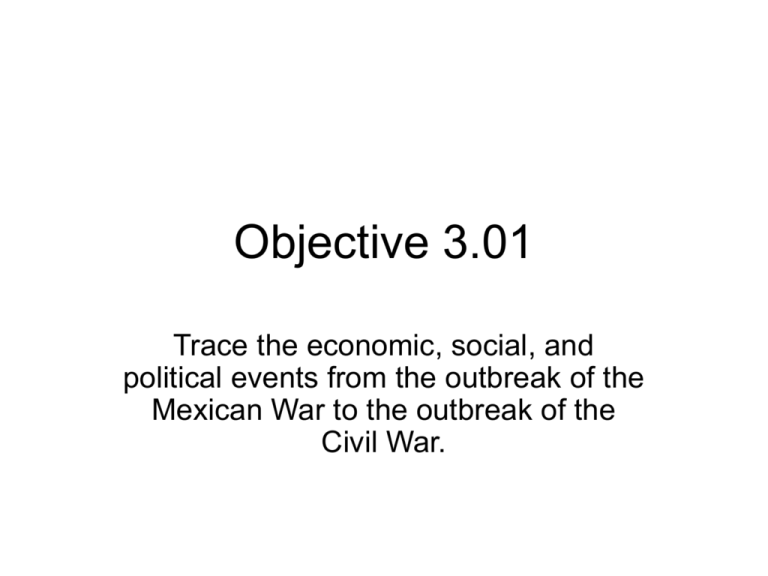
Objective 3.01 Trace the economic, social, and political events from the outbreak of the Mexican War to the outbreak of the Civil War. Anti-slavery Movement Abolitionists wanting the immediate emancipation of the slaves, led by people like William Lloyd Garrison, Frederick Douglass, and John Brown Slave Codes Laws that restricted the activities and movements of slaves and freedmen of the south: African Americans could not own a weapon, testify in court, be outside after dark, meet in groups of more than two without a white person present Underground Railroad • Movement of slaves from the south to the north through a series of safe houses Harriet Tubman Most famous conductor of the Underground Railroad Kansas-Nebraska Act Organized the territorial governments of Kansas and Nebraska, popularized the concept of Popular Sovereignty Bleeding Kansas Name for the war between Pro-slavery forces and Anti-slavery forces in Kansas Republican Party Political Party founded by members of the Free Soil Party, Northern Democratic Party, and Whig party dedicated to stopping the spread of Slavery Popular Sovereignty Vote of the people on the issue of slavery, phrase used by Stephen Douglas in the Lincoln-Douglas debates Sumner-Brooks Incident Southern senator beats a northern senator with a cane after the northern senator reads a speech in the Senate about the evils of slavery Freeport Doctrine Speech by Stephen Douglas in Illinois where he outlines his policy of Popular Sovereignty Lincoln-Douglas Debates Abraham Lincoln and Stephen Douglas discuss the issues surrounding the 1856 Illinois Senate Election Free Soil Party Political Party formed to stop the spread of slavery into the territories gained from Mexico during the Mexican-American War Dred Scott vs. Sanford Negroes have no citizenship rights, Court case involving a slave that was transported by his master into a free state, after his master dies abolitionists try to get the slave freed John Brown and Harper’s Ferry Wanted to lead a massive slave rebellion by meeting runaway slaves in Virginia and giving them weapons stolen from a military storehouse Fugitive Slave Act Captured runaway slaves are to be returned to their former masters Compromise of 1850 California enters the Union as a free state, New fugitive slave law is passed, no slave trade in Washington D.C.

